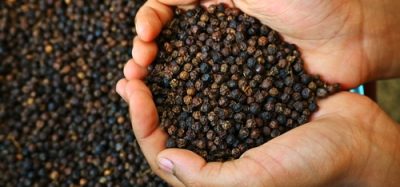UK food and drink companies could be losing £12 billion annually to fraud
- Like
- Digg
- Del
- Tumblr
- VKontakte
- Buffer
- Love This
- Odnoklassniki
- Meneame
- Blogger
- Amazon
- Yahoo Mail
- Gmail
- AOL
- Newsvine
- HackerNews
- Evernote
- MySpace
- Mail.ru
- Viadeo
- Line
- Comments
- Yummly
- SMS
- Viber
- Telegram
- Subscribe
- Skype
- Facebook Messenger
- Kakao
- LiveJournal
- Yammer
- Edgar
- Fintel
- Mix
- Instapaper
- Copy Link
Posted: 5 May 2017 | New Food | No comments yet
A recent report highlights the effect of fraud on the food and drink sector and discusses how to improve profitability by cutting the cost of fraud.


The latest research from national audit, tax and advisory firm Crowe Clark Whitehill and the University of Portsmouth’s Centre for Counter Fraud Studies (CCFS) highlights the significant effect fraud has on profitability in the food and drink sector. The ‘Minimising Fraud and Maximising Value in the UK Food and Drink Sector 2017’ report calculates the cost of fraud affecting the sector, and describes the scale of commercial benefits available to companies that manage the cost down.
Jim Gee, Head of Forensic and Counter Fraud Services at Crowe says: “Our latest report, shows that the sector could increase profitability by 43%, unlocking an additional £4.8 billion. Our experience is that the cost of fraud can be reduced by up to 40% within 12 months. Some of the FTSE listed food and drink businesses could double their profits by reducing their fraud losses.”
The report provides an insight into the benefits to the UK food and drink sector of reducing the cost of fraud. It highlights exactly how cutting the cost of fraud can boost profitability and financial health, and ultimately reduce the price of food and drink to consumers.
Jim Gee comments: “Food and drink fraud is the crime in our shopping baskets. At a time of returning food and drink inflation, the industry is under incredible pressure to manage and reduce costs. Fraud is the last great unmanaged business cost, and reducing it offers forward-thinking businesses the opportunity to improve competitiveness and increase profitability.
Shareholders and investors should be asking food and drink businesses about their cost of fraud and what is being done to manage and reduce the cost. Businesses that cannot provide a response, or suggest that fraud is not an issue for them, should be a cause for concern.”







